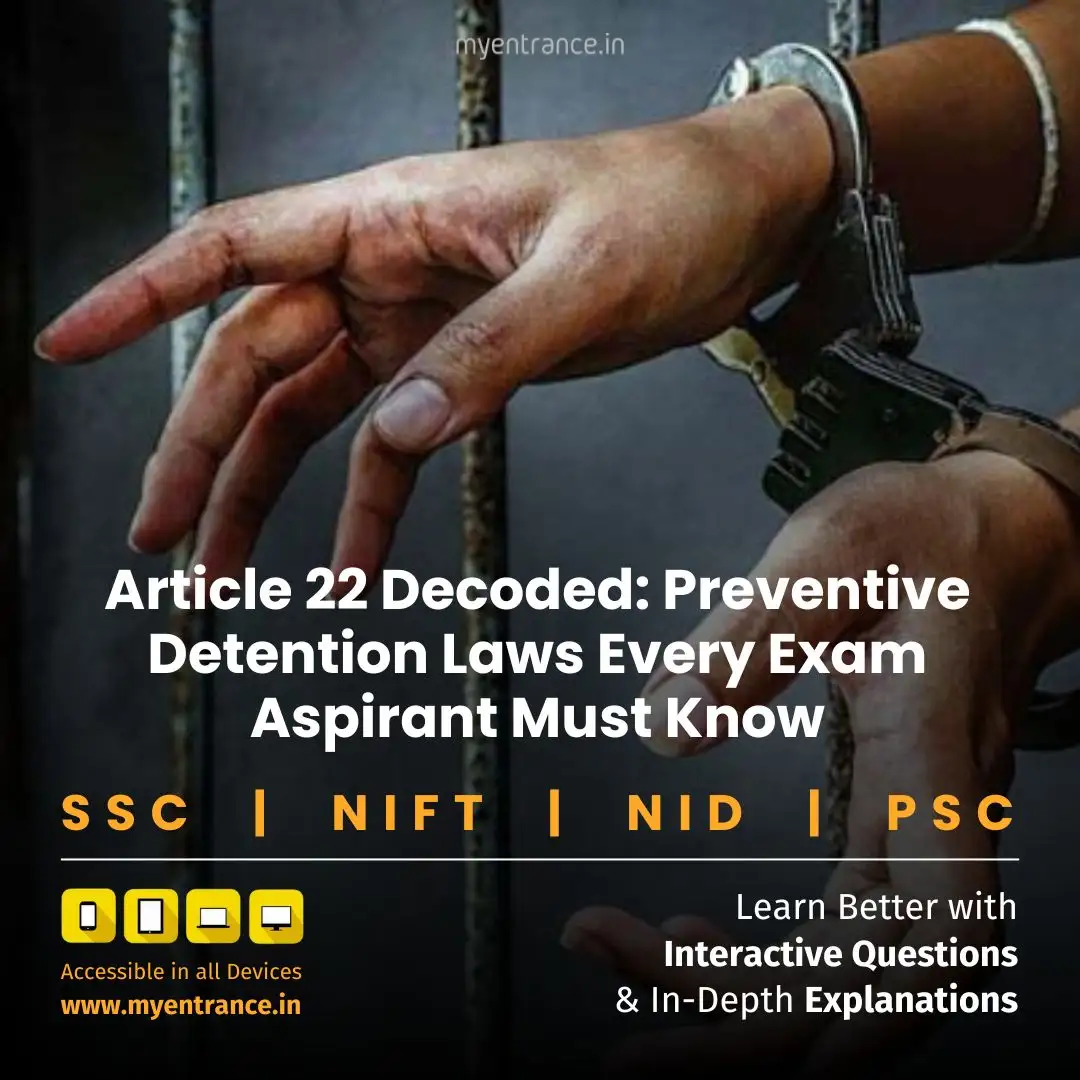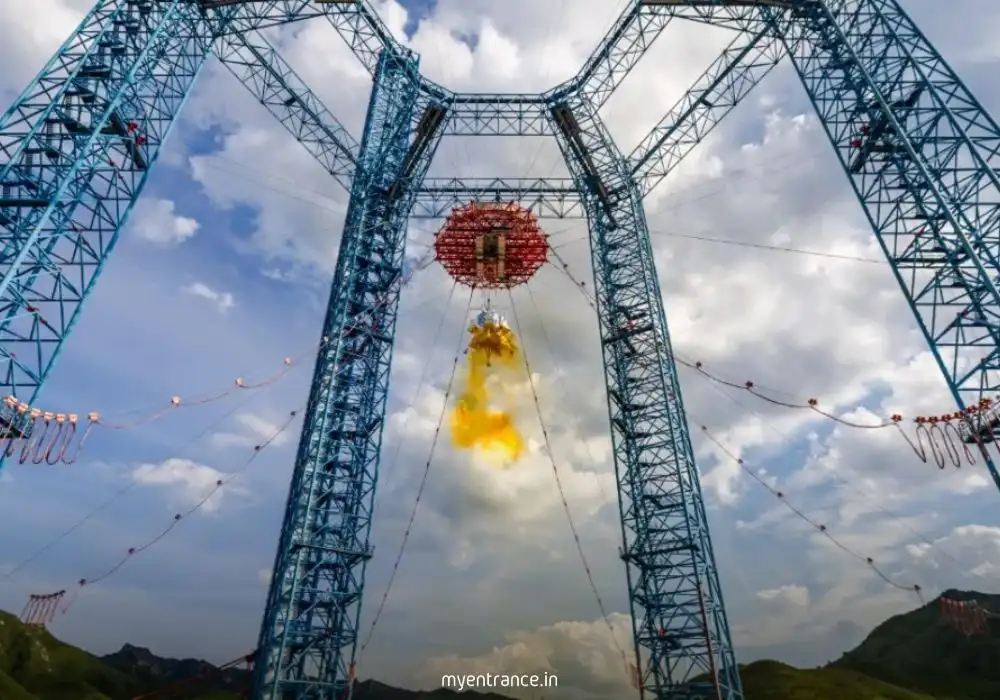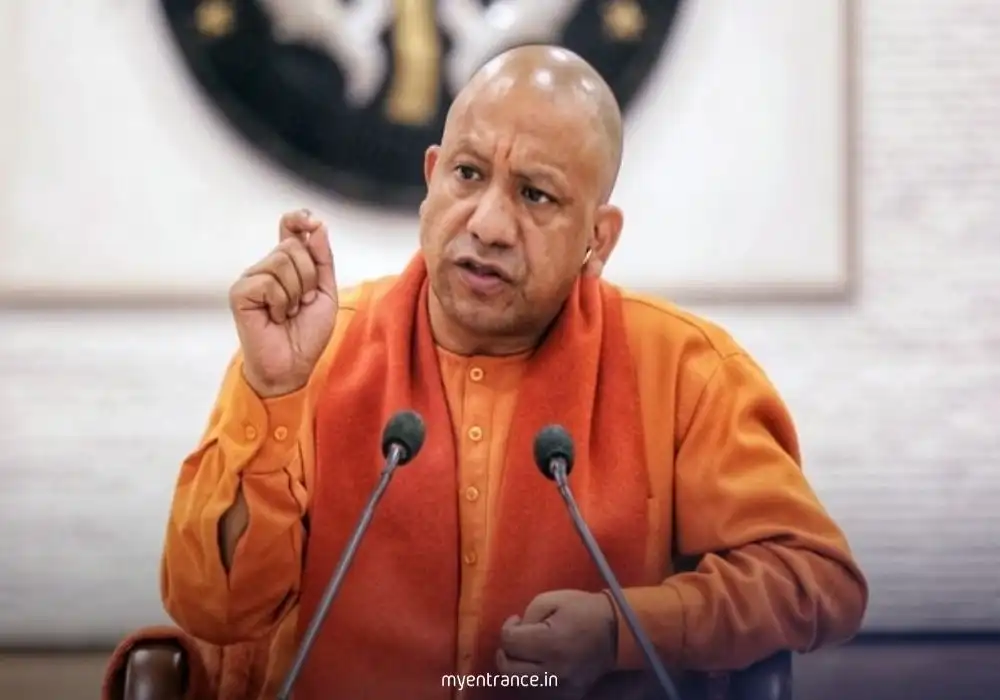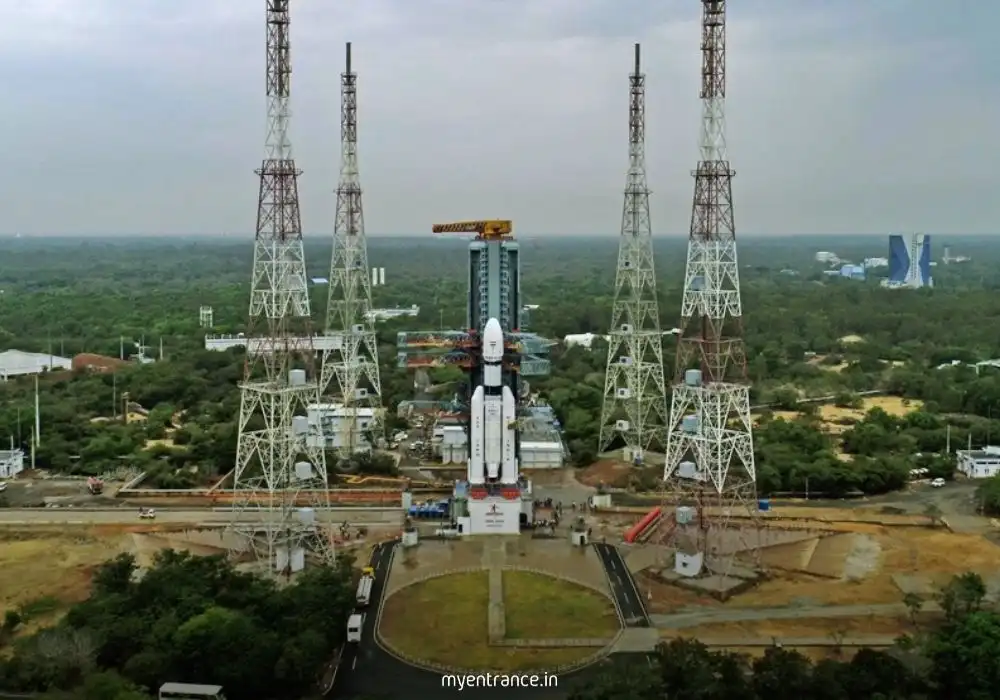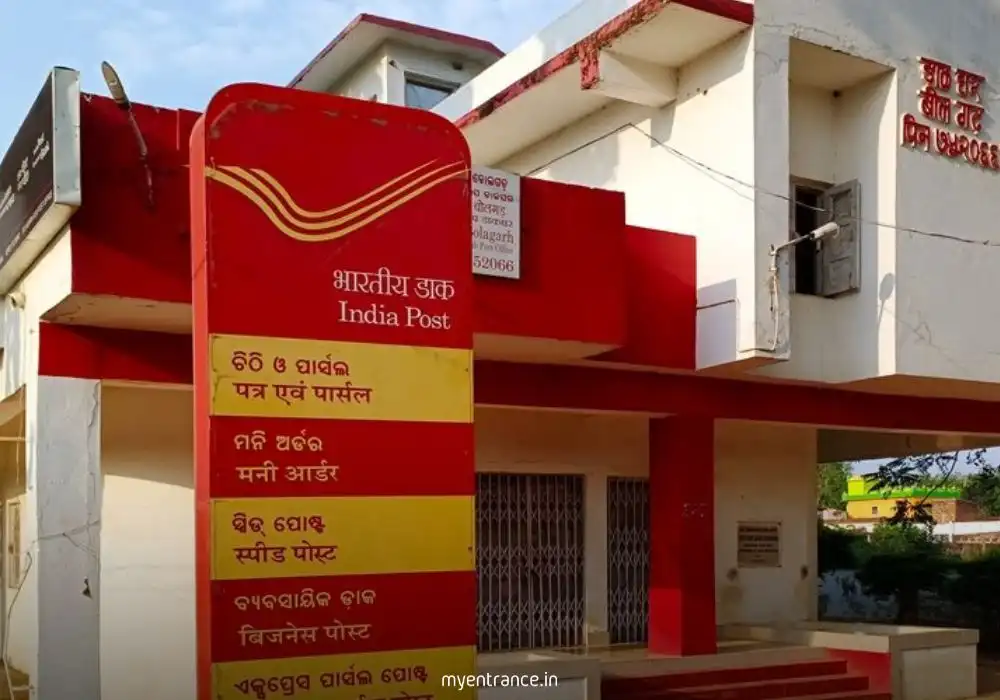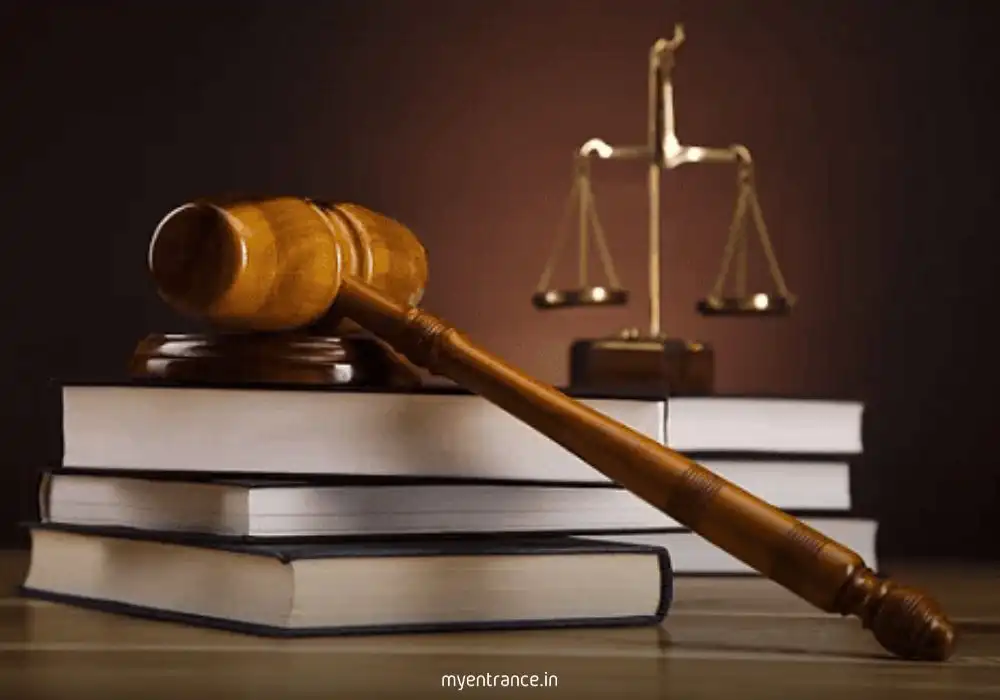Select Language
Article 22 Decoded: Preventive Detention Laws Every Exam Aspirant Must Know: Sample Q&A
The Supreme Court’s stern warning against misuse of preventive detention powers sparks a crucial debate on liberty vs. state authority. This landmark ruling directly impacts Indian Polity syllabus topics for SSC, PSC, and Civil Services exams.
The Kerala Case: When Detention Crossed Constitutional Lines
In a landmark verdict, the Supreme Court overturned Kerala’s preventive detention order against a money lender, declaring: “Preventive detention is an extraordinary power… must be used sparingly.” The Court stressed that bail cancellation petitions—not detention—were the legal remedy. This ruling exposes critical gaps in how states apply Article 22 of the Constitution.
Preventive vs. Punitive Detention: Know the Difference
Preventive Detention: State detains individuals to prevent future crimes (e.g., national security threats). No trial needed.
Punitive Detention: Arrest after committing a crime, followed by trial and punishment.
Why it matters for exams: Preventive detention suspends fundamental rights under Article 21 (Right to Life) and Article 22 safeguards.
Constitutional Safeguards & Loopholes
Article 22(3)-(7) allows preventive detention but with checks:
Advisory Board Approval: Needed for detention beyond 3 months.
Grounds of Detention: Must be shared “as soon as may be” [Article 22(5)].
Right to Representation: Detainees can challenge the order.
Critical Gap: Article 22(6) lets states withhold facts “against public interest”—a major exception exploited by authorities.
Why the SC Verdict Matters
Balance of Power: Detention can’t replace bail cancellation (Kerala’s mistake).
“Public Order” ≠ “Law and Order”: Detention only valid for grave threats to public peace.
Syllabus Connect: Directly links to Mains GS-II (Constitution, Fundamental Rights) and Prelims Polity.
“Preventive detention curtails liberty in anticipation of crime. It is not routine state power.”
– Supreme Court Bench (Sanjay Karol & Manmohan, JJ)
Key Exam Takeaways
Fundamental Rights Impacted: Articles 14 (Equality), 19 (Freedom), 21 (Liberty).
Laws Enabling Detention: NSA (National Security Act), UAPA, State-specific laws.
Historical Context: Preventive detention traces back to colonial-era laws like the Bengal Regulation III of 1818.
Sample Q&A for Exam Prep
Q: What distinguishes preventive from punitive detention?
A: Preventive detention stops potential crimes; punitive detention punishes committed crimes after trial.
Q: Which constitutional article exempts preventive detainees from standard arrest safeguards?
A: Article 22(3)(b).
Q: What is the maximum detention period without Advisory Board approval?
A: 3 months (Article 22(4)).
Q: Name one duty of the state under Article 22(5).
A: Communicate detention grounds “at the earliest” and allow representation.
Q: Which SC verdict stressed that preventive detention must be “used sparingly”?
A: 2024 Kerala money-lender case.
Most Predicted Questions
Comprehensive study materials, Expert-guided tips & tricks, Mock tests and instant results.
Start your SSC, NIFT, NID, FDDI, PSC journey today with MyEntrance, your ultimate online coaching platform.
